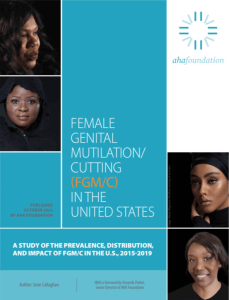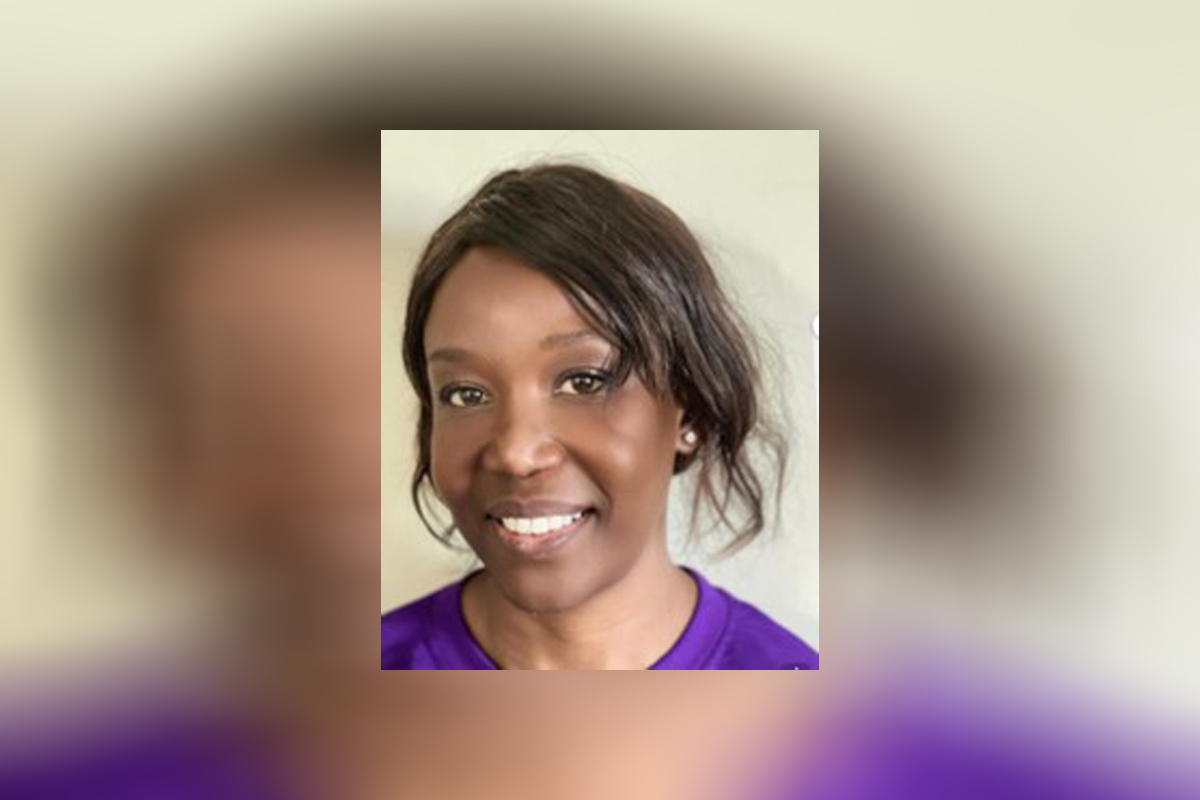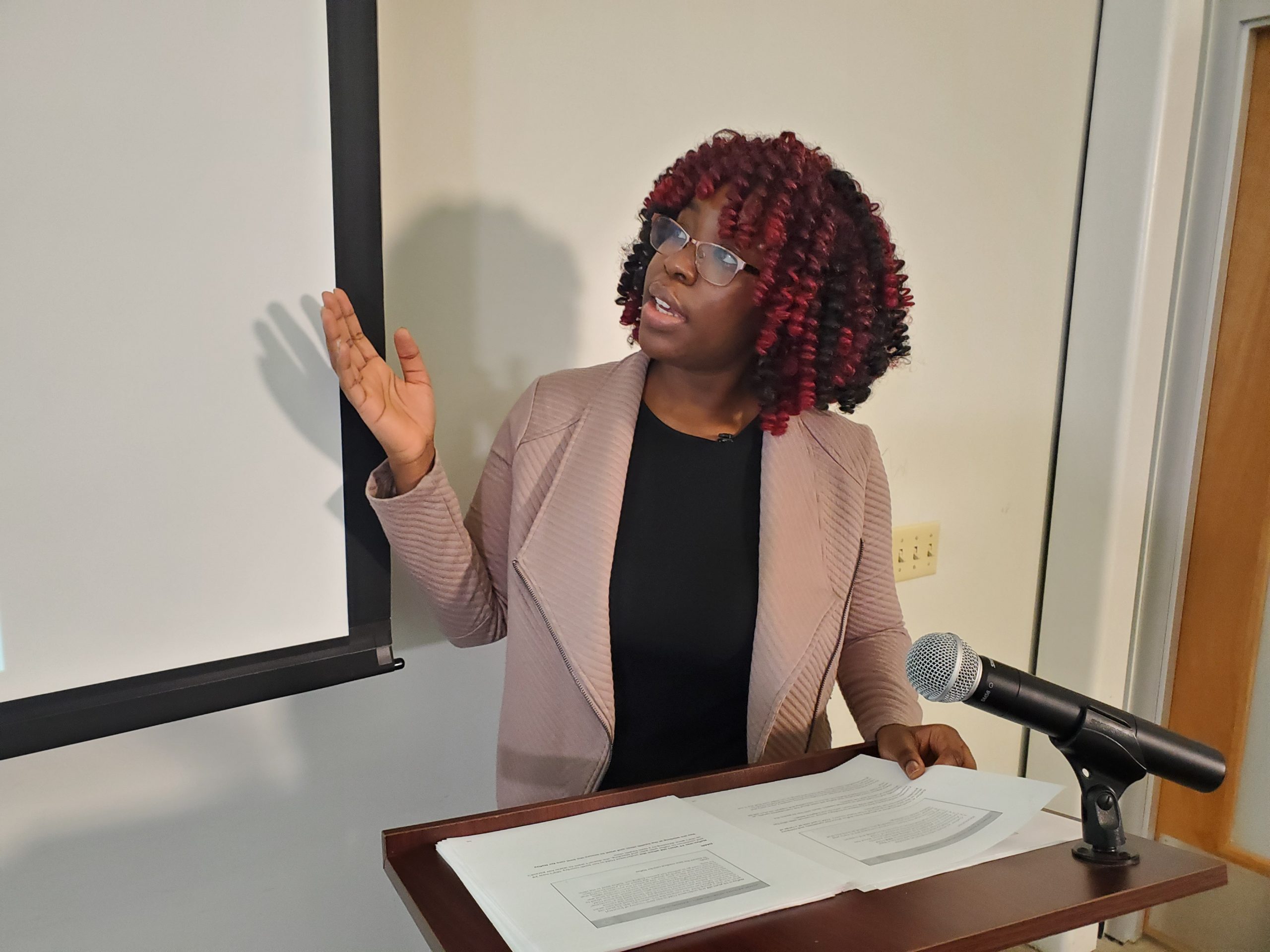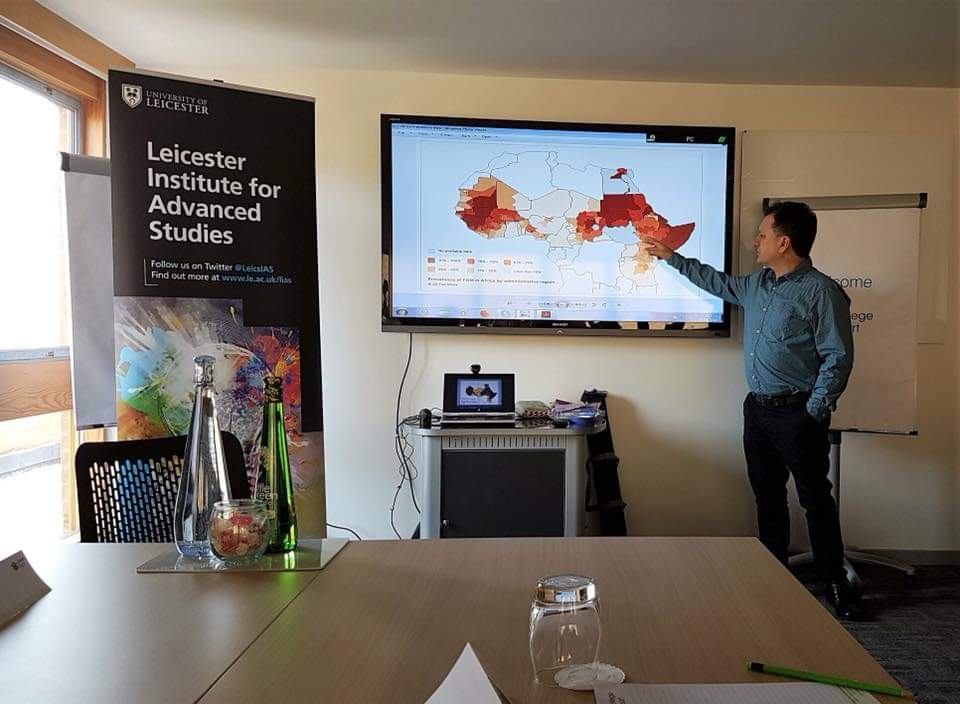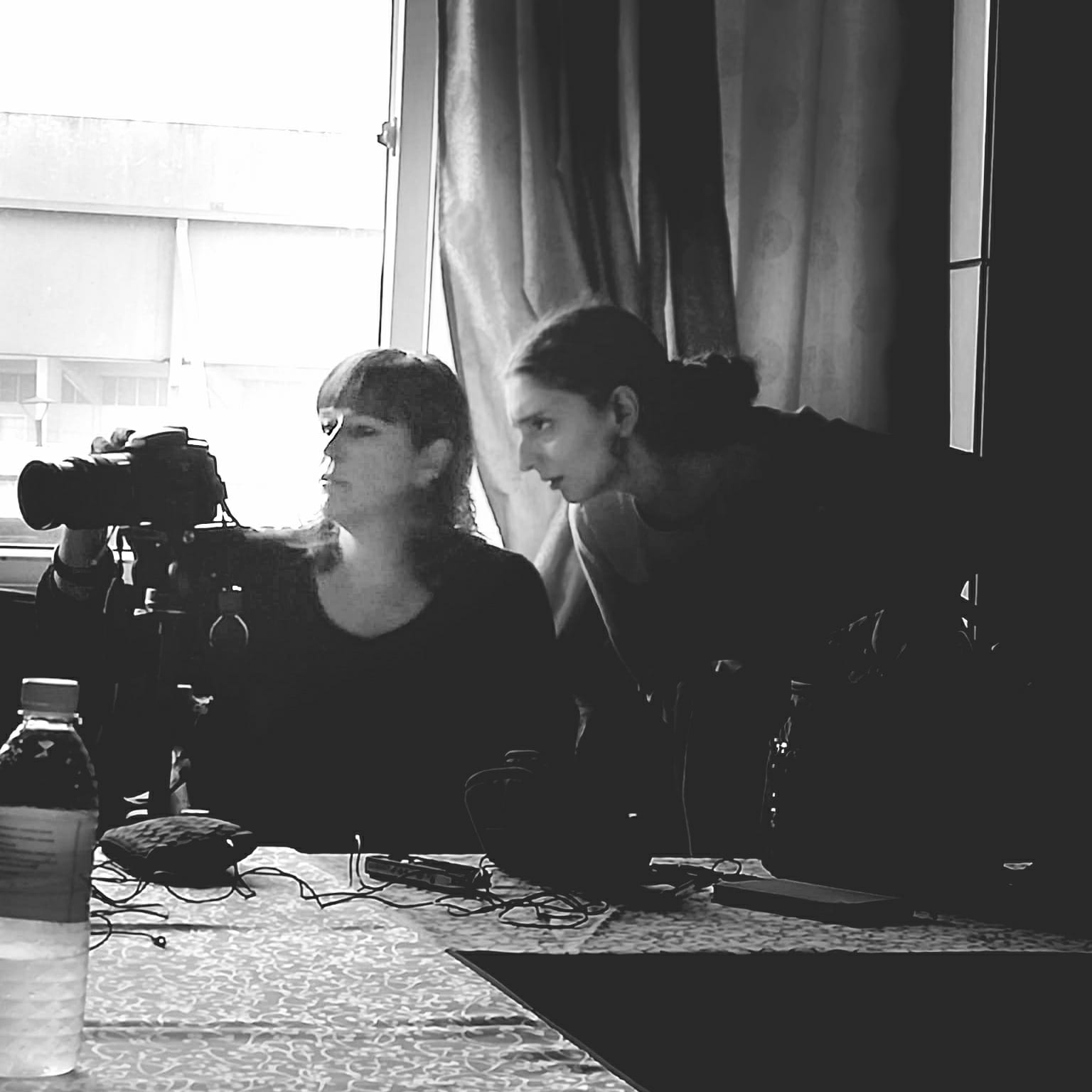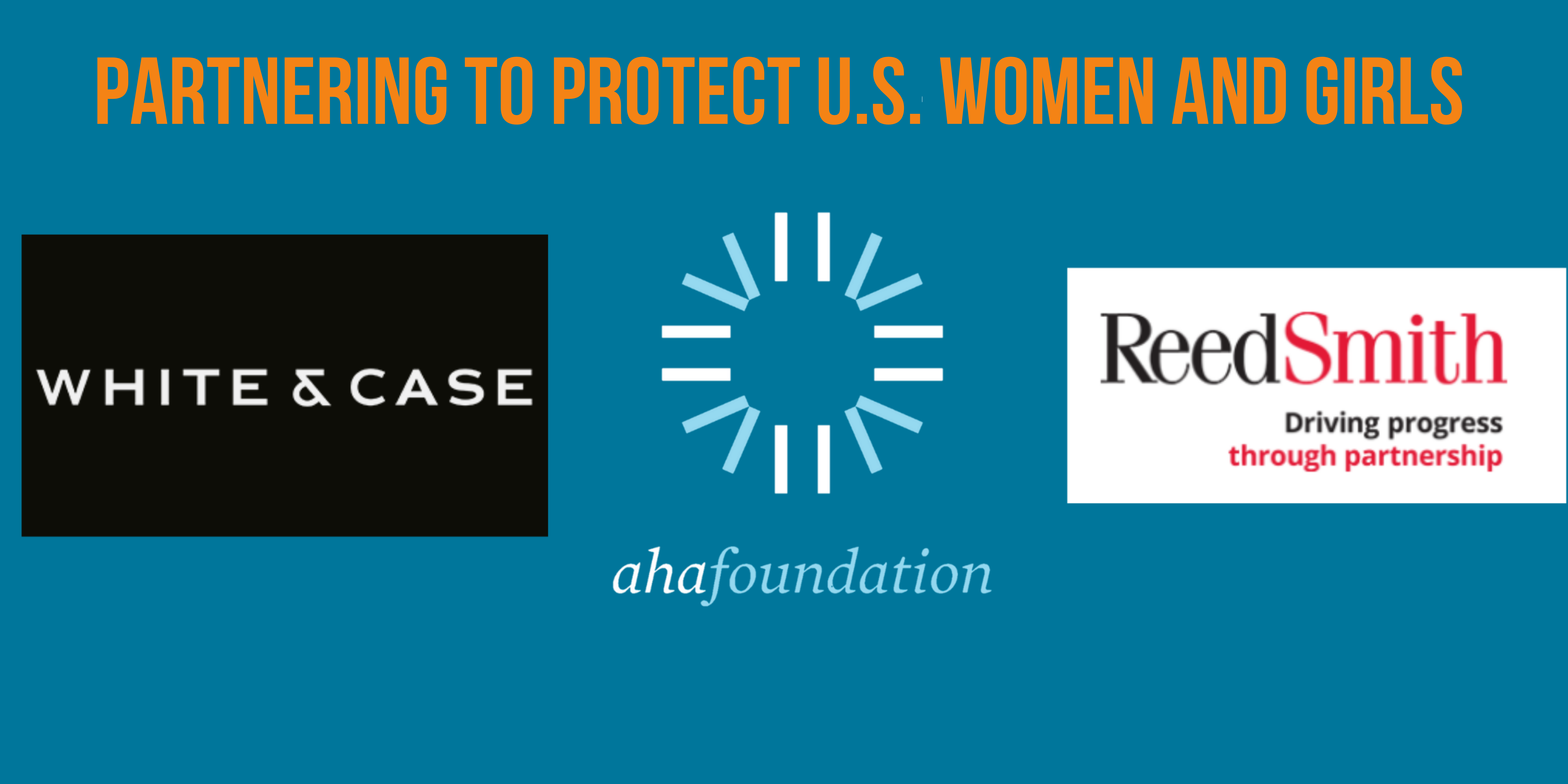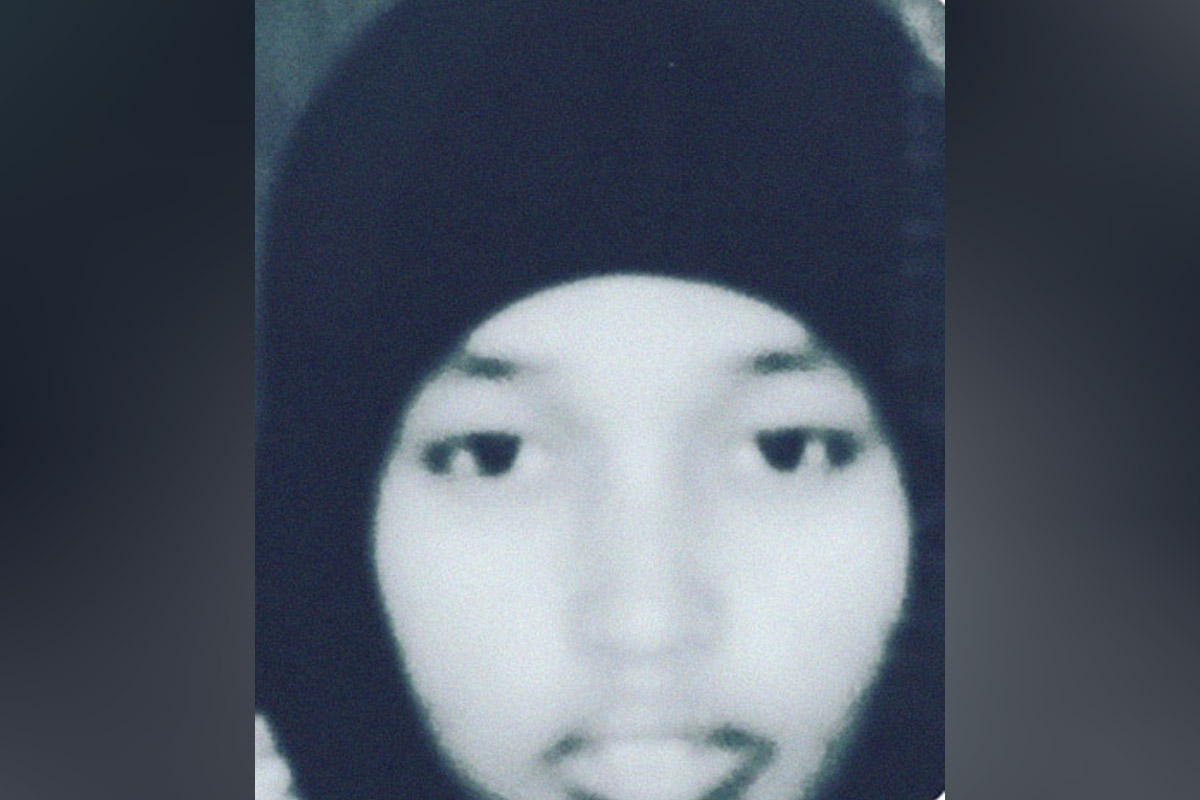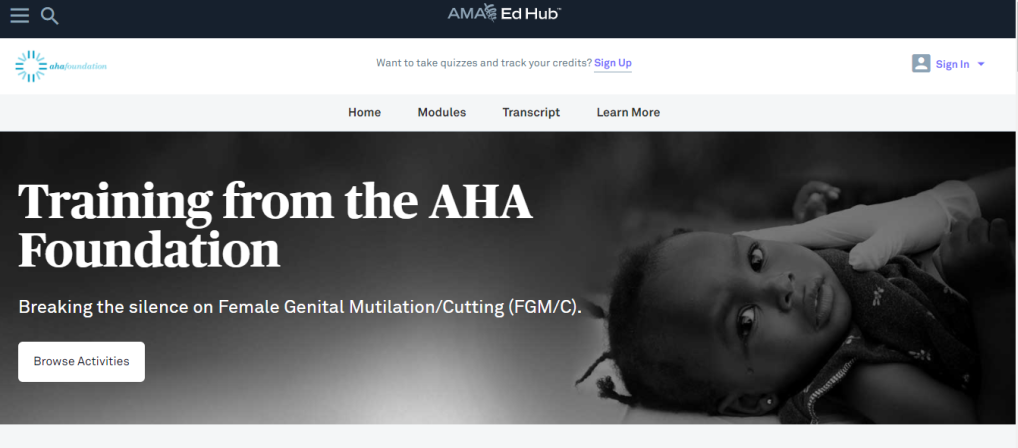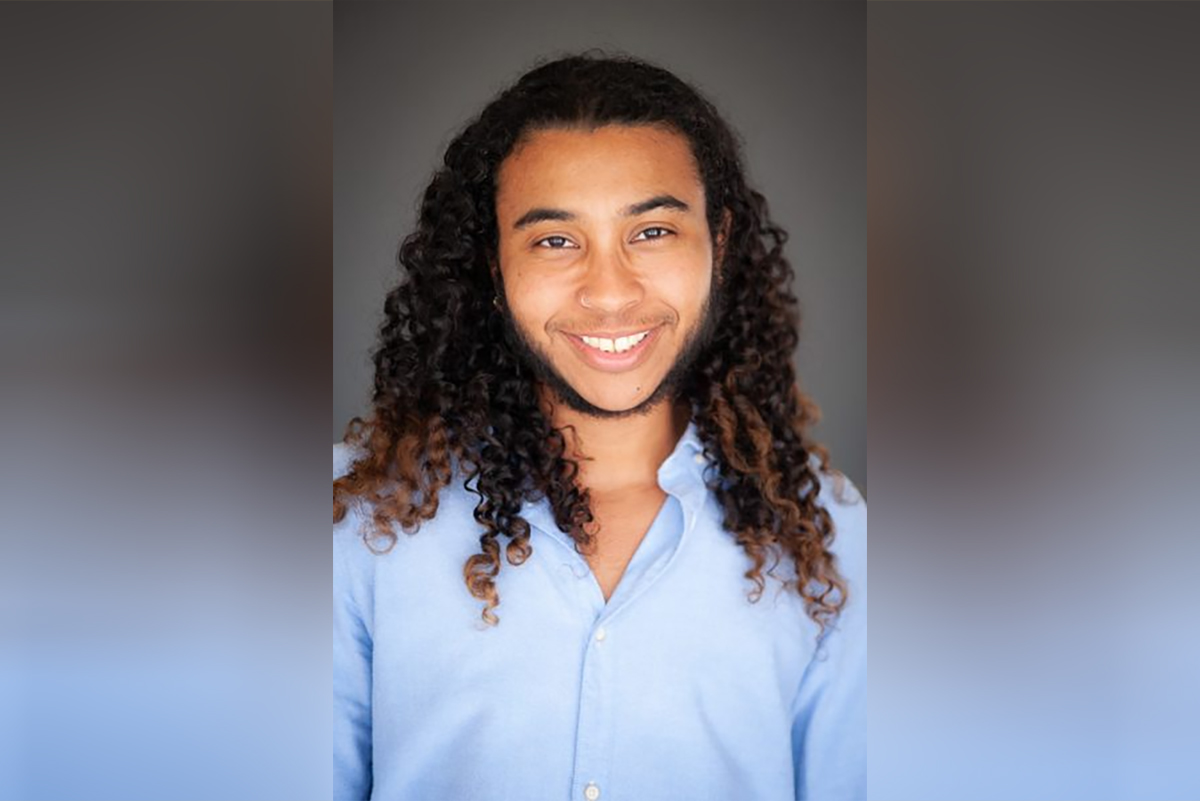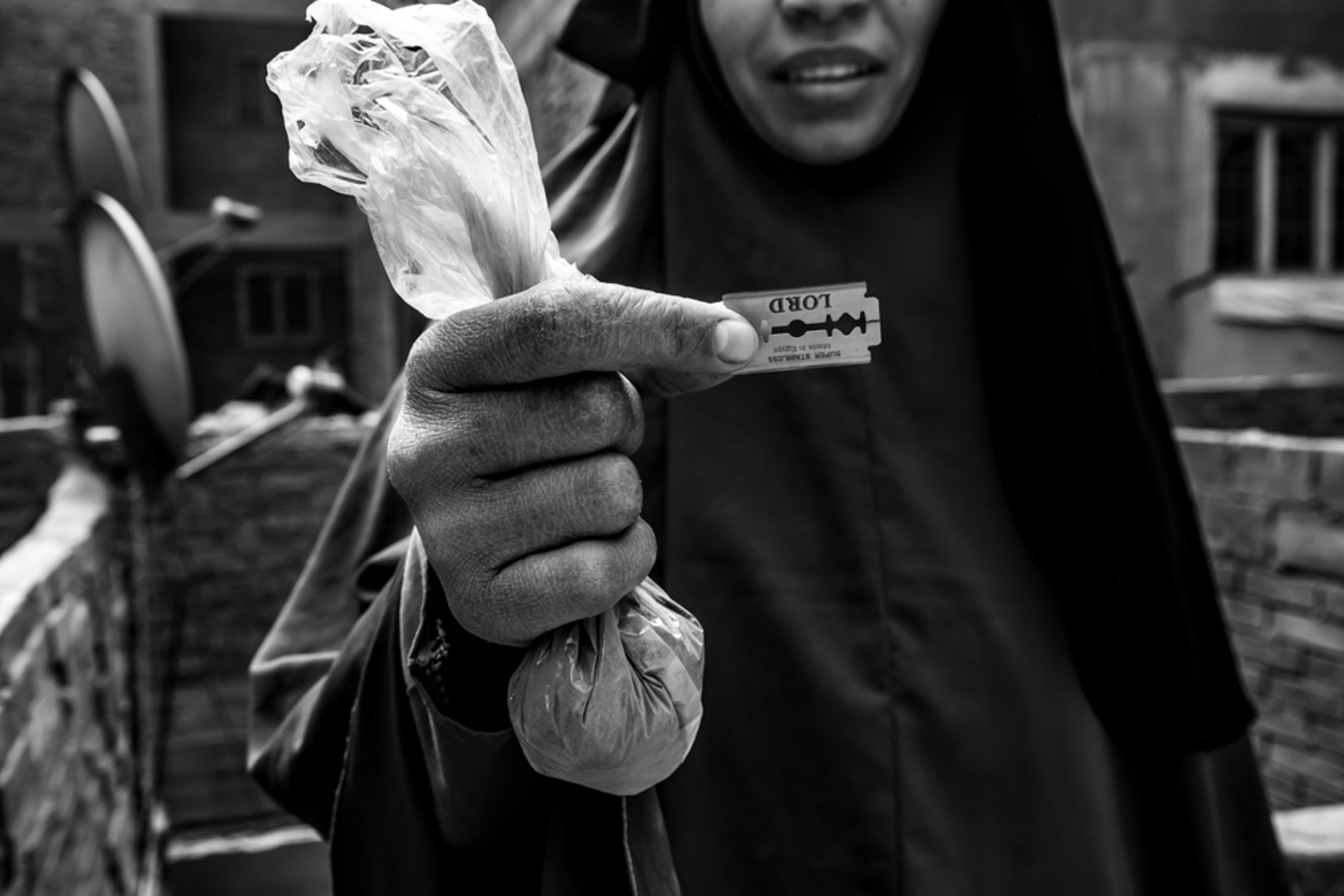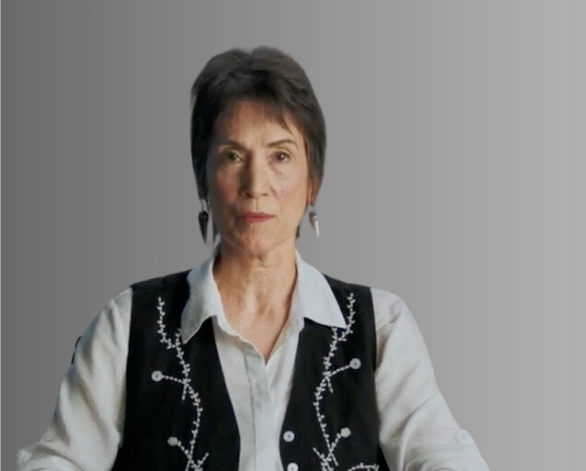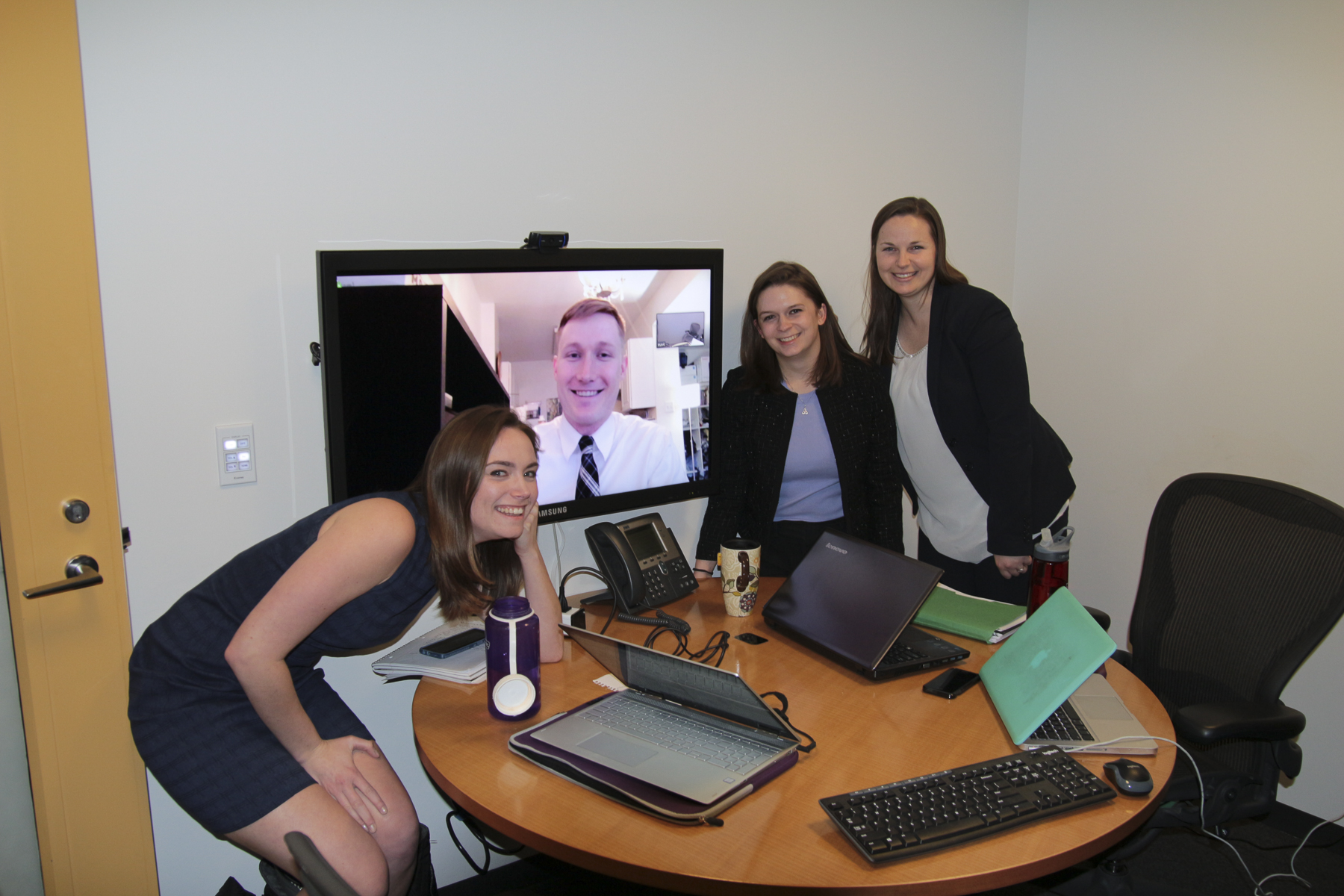What is Female Genital Mutilation (FGM)?
Female genital mutilation (FGM) is any procedure involving the partial or total removal of the external female genitalia or other injury to the female genital organs. FGM is often performed on girls between the ages of 4 and 14 to ensure their virginity until marriage.
The World Health Organization reports that FGM has no health benefits and can cause serious and often lifelong physical and psychological health problems.
Immediately following the procedure, girls are at risk of severe pain, shock, bleeding, bacterial infection, and injury to nearby tissue. In the long term, women and girls are at risk of recurrent bladder and urinary tract infections, cysts, infertility, and complications during intercourse and childbirth. Depression, anxiety, PTSD and other psychological issues often follow the trauma of the procedure.
Immediately following the procedure, girls are at risk of severe pain, shock, bleeding, bacterial infection, and injury to nearby tissue. In the long term, women and girls are at risk of recurrent bladder and urinary tract infections, cysts, infertility, and complications during intercourse and childbirth. Depression, anxiety, PTSD and other psychological issues often follow the trauma of the procedure.

..FGM is a Reality in the U.S.
.....FGM is illegal in the United States but it still takes place
30,956 girls in the U.S. are likely at risk of FGM.
384,714 women and girls in the U.S. are likely living with FGM.
In 2017, the FBI arrested a doctor in Michigan for allegedly cutting up to 100 girls.
Nearly 1,500 girls are estimated to be at risk in the 9 states (+ the District of Columbia) that do not have state legislation against the practice.
Groundbreaking New Study Reveals Extent of and Migration Impact on Female Genital Mutilation/Cutting (FGM/C) in the U.S.
Written by data and FGM/C expert Sean Callaghan, this study breaks new ground in understanding the prevalence, distribution, and impact of FGM/C in the U.S.
This is an invaluable resource for frontline professionals likely to encounter FGM/C cases, community leaders, legislators, and all others dedicated to ending this abusive practice.
For professionals working to address FGM/C in the U.S.:
Not published within the report pages or elsewhere are much more granular maps that can show the specific locations of schools, medical facilities, community centers, and more within areas of practicing communities. Please contact us at info@theahafoundation.org if this information would be useful to your work.
What is Female Genital Mutilation (FGM)?
Female genital mutilation (FGM) is any procedure involving the partial or total removal of the external female genitalia or other injury to the female genital organs. FGM is often performed on girls between the ages of 4 and 14 to ensure their virginity until marriage.
The World Health Organization reports that FGM has no health benefits and can cause serious and often lifelong physical and psychological health problems.
Read more
Immediately following the procedure, girls are at risk of severe pain, shock, bleeding, bacterial infection, and injury to nearby tissue. In the long term, women and girls are at risk of recurrent bladder and urinary tract infections, cysts, infertility, and complications during intercourse and childbirth. Depression, anxiety, PTSD and other psychological issues often follow the trauma of the procedure.

..FGM is a Reality in the U.S.
.....FGM is illegal in the United States but it still takes place
30,956 girls in the U.S. are likely at risk of FGM.
384,714 women and girls in the U.S. are likely living with FGM.
In 2017, the FBI arrested a doctor in Michigan for allegedly cutting up to 100 girls.
Nearly 1,500 girls are estimated to be at risk in the 9 states (+ the District of Columbia) that do not have state legislation against the practice.
Groundbreaking New Study Reveals Extent of and Migration Impact on Female Genital Mutilation/Cutting (FGM/C) in the U.S.
Written by data and FGM/C expert Sean Callaghan, this study breaks new ground in understanding the prevalence, distribution, and impact of FGM/C in the U.S.
This is an invaluable resource for frontline professionals likely to encounter FGM/C cases, community leaders, legislators, and all others dedicated to ending this abusive practice.
For professionals working to address FGM/C in the U.S.:
Not published within the report pages or elsewhere are much more granular maps that can show the specific locations of schools, medical facilities, community centers, and more within areas of practicing communities. Please contact us at info@theahafoundation.org if this information would be useful to your work.

Stories from Survivors and Advocates
October 3, 2023
Published 10/3/2023 Raha Europ was born to Somalian parents in a Kenyan refugee camp, where she lived until […]
November 7, 2022
Published 11/7/2022 Growing up in Chad, Bayor Chantal Ngoltoingar had a happy childhood—until the day she was forced […]
June 7, 2022
Published 6/7/2022 Last year, we shared with you that AHA Foundation had won a 3-year federal grant from […]
May 30, 2022
Published 6/7/2022 Sean Callaghan is pursuing a PhD at the University of Leicester in the U.K. His research, […]
April 27, 2022
Filmmaker Emanuela Zuccalà on her new documentary about FGM in Liberia: “I find it absurd that even today […]
February 22, 2022
Published 03/02/2022 This year marks the 15th anniversary of Ayaan Hirsi Ali founding AHA Foundation. Since the very […]
January 27, 2022
Published 2/3/2022 A major part of our work at AHA Foundation is to end female genital mutilation (FGM) […]
January 24, 2022
Published 2/3/2022 A major part of our work at AHA Foundation is to end female genital mutilation (FGM) […]
December 7, 2021
Published 12/07/2021 Sahara Ash grew up in a refugee camp in Kenya where she was forced to undergo […]
November 29, 2021
Published 12/07/2021 AHA Foundation is proud to announce that our groundbreaking online training program for combating female genital […]
October 6, 2021
For a girl who has been surrounded her whole life by family and friends who shame and threaten her, AHA Foundation case managers working at our Helpline can be the first to offer support. These case managers’ impact on the lives of at-risk girls is immeasurable, and few know this better than Egypt Leithman.
May 25, 2021
Published on 5/25/2021 In most of the states where AHA Foundation works, we see unanimous support for outlawing […]
March 24, 2021
03/24/2021 Discussing female genital mutilation (FGM) and seeing visuals that depict the practice can be uncomfortable for many […]
April 21, 2020
Earlier this month, amidst the COVID-19 pandemic, legislators in Kentucky passed a comprehensive ban against female genital mutilation […]
April 13, 2020
Kentucky recently became the 38th state to pass comprehensive legislation against female genital mutilation (FGM)! More than 1,845 […]
November 18, 2019
Joanna Vergoth Helps Survivors Deal With the Psychological Consequences of Female Genital Mutilation
Joanna Vergoth is a licensed psychotherapist specializing in trauma. For the last 20 years she has dedicated herself […]
October 10, 2019
I am a white, Christian woman who was born and raised in the United States. When I was […]
April 29, 2019
Dr. Deborah Ottenheimer is one of the few doctors in the U.S. who specialize in care to survivors […]
April 25, 2018
Every month, dozens of people reach out to AHA Foundation for help. They are people who have survived […]
March 28, 2018
A group of talented and determined students from Penn State’s Dickinson Law have taken up the challenge of […]


